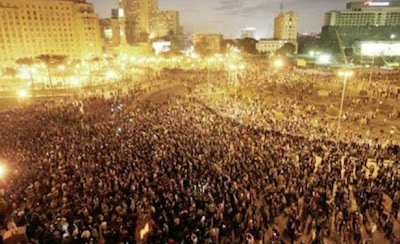Let me see if I get this logic straight. We have various heart attacks if our well documented Western citizens are recruited by ISIS and end up in Syria helping to establish an Islamic Caliphate.

But at the same time we are allowing over a million undocumented refugees to flow into the heart of Europe coming directly from Syria and Afghanistan.
And then we get surprised when some ISIS recruits kill scores of innocent civilians in Paris.
Synergy is when 1 plus 1 equals 3. And these lax borders are creating synergy for Islamic terrorists. Why bother with old methods of infiltrating your enemy country and establishing a new identity? Just throw your suspicious identity away and sail to Greece in a rubber dingy with thousands of other men of fighting age. Walk to Germany and get distributed to any of the EU countries.
I'm tired of being politically correct here. There is a religious war going on and the enemy has stormed the walls. They are within our cities and killing our citizens. This has to end.
But how to end this? As in anything else there is a continuum of possible responses. On one extreme is doing nothing and the other is exterminating all Muslims. Clearly we cannot go to the latter extreme but it is time we moved a little further from the former extreme. The little surveillance we are conducting is not keeping us safe.
How about an end to Muslim immigration in the West? Is that going too far?














